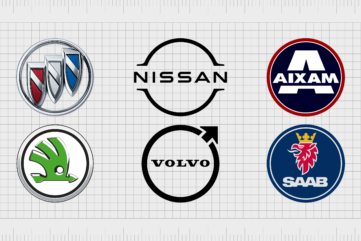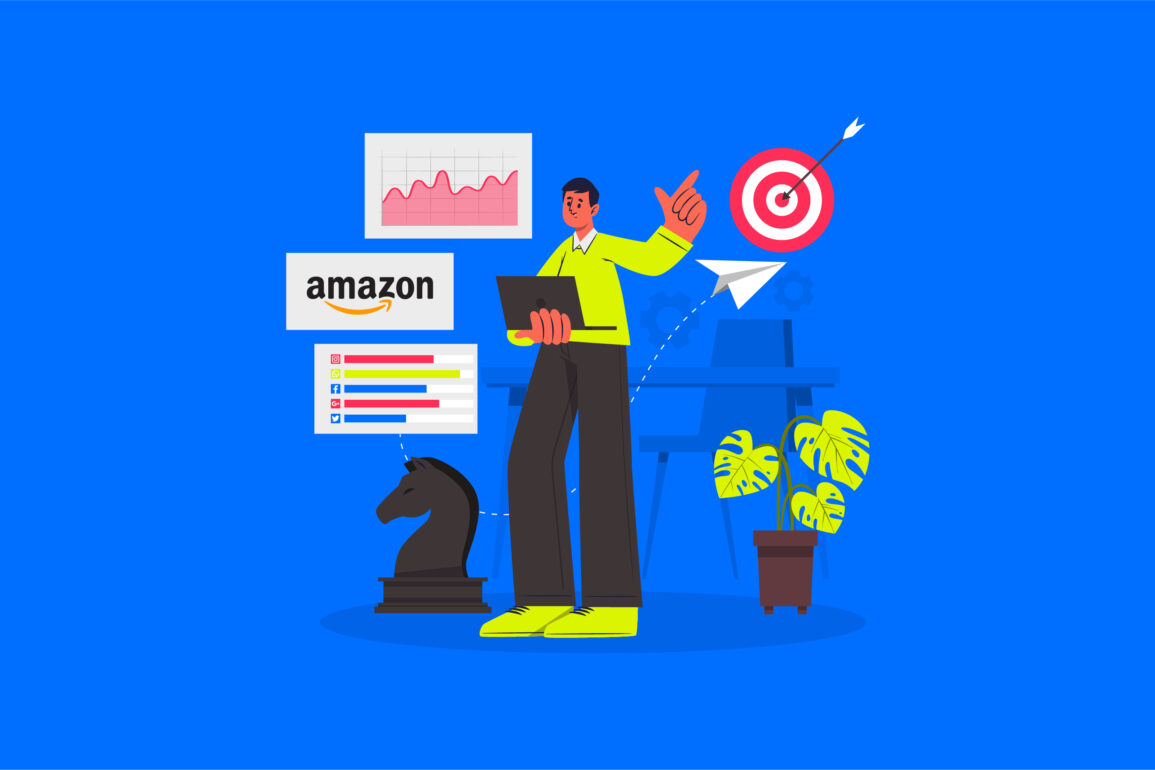15 Myths about SEO: Busting the top SEO myths

Myths about SEO are everywhere in the online marketing world. It’s not surprising when you consider the landscape for Search Engine Optimization is constantly changing, with endless new rules and algorithms appearing all the time.
Unfortunately, SEO myths can also significantly harm your chances of ranking online by guiding your strategies in the wrong direction.
To succeed in the online environment, businesses need to ensure they’re consistently optimizing their blogs, posts, and web pages to capture the attention of both customers and search engines. Fail to leverage SEO correctly, and you risk losing valuable prospects.
Fortunately, it is possible to separate SEO facts from fiction with a bit of research. Today, we will be exploring some of the top myths about SEO, to help you avoid the most common mistakes.
Is SEO still relevant in 2023? Facts about SEO
Before we dive into our SEO myths, it’s worth outlining some facts about SEO. First and foremost, no matter what you might hear from advertising groups and business leaders, SEO is far from dead in 2023. It’s still one of the most valuable tools to grow your business.
For several years, companies have been suggesting “SEO” may no longer be as practical or relevant as it once was in the digital world.
However, this simply isn’t the case. At least 68% of online experiences still start with a search engine, and 53.3% of all website traffic comes from organic search. Moreover, SEO drives 1,000% more traffic than the average social media post.
Research consistently proves that search engines still have a significant role to play in determining how consumers find products, services, and brands.
Since only around 0.63% of consumers click on the second page of Google, companies need to ensure they’re mastering their ranking strategies if they have any hope of generating meaningful traffic.
Remember, 60% of marketers say inbound content (including SEO) delivers the highest quality leads, and SEO leads have an average close rate of around 14.6%. If you’re not investing in SEO already, now could be a crucial time to start.
Myths about SEO: 15 SEO myths you should know
Now you know some of the facts about search engines, it’s time to dive into the fictions. The following SEO myths could quickly destroy your online marketing efforts if you’re not careful.
1. Companies only need to invest in SEO once
This is one of the top SEO myths we believe should have been busted long ago. Unfortunately, countless businesses still think they only need to invest in search engine optimization when launching their new website or blog.
While it’s true that the technical and on-site optimization efforts you implement when building your website can deliver long-term, compounding results, you also need to consistently work on enhancing your SEO techniques.
Fail to do so, and you’ll notice your competitors begin to overtake you, you start losing backlinks, and you may miss out on traffic.
Remember, 74.71% of SEO professionals charge a monthly retainer for their services because mastering the search engines is a long-term process.
2. Google only ranks new and fresh content
Fresh content is excellent for SEO. The more blog posts, articles, and other entertaining content you produce, the more likely you are to attract visitors and improve your online authority.
Additionally, because SEO is constantly changing, updating your website with fresh content is a great way to ensure you stay on the algorithms’ good side.
However, that doesn’t necessarily mean Google only cares about fresh content.
Google is also more than happy to rank pages considered “evergreen.” You don’t necessarily need to focus on consistently posting new blog posts daily. You can also boost your rankings by ensuring your existing content is relevant, up-to-date, and engaging.
3. SEO is all about content
As mentioned above, content is a powerful part of any SEO strategy, and it’s necessary if you want to rank well online. However, one of the biggest SEO myths is that content is the only thing you need to focus on if you want to generate traffic.
The search engine algorithms for sites like Google focus on delivering customers the best possible experiences. This means they’re looking for signs that customers will appreciate their time on specific sites and web pages.
If your content is excellent, but your website design is terrible, or your site fails to load quickly, your customers will still hit the back button.
In other words, if you want to succeed with SEO, you need a combination of great content and a fantastic user experience. That’s why “technical SEO” is an essential consideration for any brand. Make sure your pages are attractive, easy to navigate, and capable of loading quickly.
4. Duplicate content is penalized by search engines
Ideally, every blog post and piece of content you publish on your website will be unique, optimized for a specific keyword, and relevant to your audience. However, there are times when you need to say the same thing more than once across your website.
One of the most common myths about SEO is that duplicate content will always lead to penalization. However, that’s not necessarily the case. Google has said multiple times it won’t deliver penalties to companies based on duplicate content alone.
However, duplicate content can lead to issues like backlink dilution, syndicated content outranking your company, and wasted crawl budgets. It is still worth using sitemap strategies, canonicals, and internal links pointing to a preferred page to protect your SEO efforts.
5. Long-tail keywords are always easier to rank for
Just like content, keywords are one of the core components of a successful SEO strategy. Indeed, most SEO campaigns will start with keyword research. The best keywords for any website are the ones your customers are already looking for.
Unfortunately, short-tail keywords can be quite difficult to rank for because they’re often heavily saturated.
SEO myths suggest long tail keywords will always be easier to rank for, but this isn’t necessarily the case.
Sometimes, long-tail keywords have less “difficulty” associated with them but also a lot less search volume. Ideally, you should look for keywords with excellent volume and reasonably low keyword difficulty if you want to rank.
Make sure to focus on long-tail keywords sparingly. Do your research to find out which terms will generate the most traffic.
6. Social signals directly impact rankings
Some of the biggest myths about SEO revolve around the “off-page” efforts companies can make to improve their online traffic. One common belief is that social media pages will directly increase your search potential. However, Google experts have clearly said this isn’t the case.
Crucially, though, just because social signals don’t directly affect rankings doesn’t mean they’re unimportant. Social metrics like shares and brand mentions will indirectly increase your chances of collecting leads and traffic.
Studies have shown a correlation between a strong social media presence and a higher search engine ranking. This is probably because more shares lead to more exposure and increased traffic.
Social media marketing campaigns can also increase your backlinks, which count towards your SEO results. In other words, it’s still worth investing in social media.
7. Paid ads won’t help your rankings
Paying for ads with Google won’t directly influence your rankings either. Although it’s tempting to think Google might give you a boost if you pay for their products, that’s simply not the case. However, like social media, paid ads can improve your rankings indirectly.
The main reason is that “Pay Per Click” or “PPC” campaigns are excellent at attracting backlinks. They’re also fantastic when you want to experiment with different keywords and determine which terms are most likely to lead to valuable, high-intent traffic.
In some cases, paid ads will also improve your brand reputation by helping to position you as high as possible on the search results. Many companies find they get much better results from their online marketing when they combine SEO and PPC.
8. Keyword targeting became less important after Hummingbird
One of the things that makes it so hard to keep on top of SEO myths is that search engine algorithms are constantly changing. A while ago, the Hummingbird algorithm changed how search engines work, leading many people to assume that keywords were suddenly less critical.
Filling your website pages with keywords is no longer an effective way to stand out online. However, this doesn’t mean you shouldn’t focus on keywords. Following Hummingbird, companies simply need to ensure they’re using keywords aligned to search intent.
In other words, you don’t have to worry as much about keyword ratios and making sure a specific term appears several times throughout your content. However, it would help to consider why your customers are searching for specific terms and what they need from you.
9. XML sitemaps will boost your search rankings
XML sitemap generators have grown increasingly popular over the years. Many companies now believe sitemaps will help boost their rankings and position their pages correctly for Google.
However, according to Google experts, a sitemap doesn’t influence your pages’ ranking. Instead, they act as an aid for Google, helping them to crawl your pages.
Like many other marketing strategies, XML sitemaps won’t directly influence your rankings. Still, they can help you position your website higher in the search results by making it easier to build a crawlable site.
With an XML sitemap generator, you’ll submit a new list of crucial pages to Google every time you create a new post or update your content.
There’s no guarantee your rankings will improve with an XML sitemap, but these tools will help Google discover your content faster.
10. You don’t need meta tags
Meta tags are a valuable part of your SEO strategy, but thanks to SEO myths, they’re frequently overlooked. Meta tags are snippets of HTML which appear between the opening and closing <head> components of your pages. They show preview snippets for your pages in the search results.
Using meta tags in your content is an excellent way to ensure you send the right information to potential customers about your website. When you don’t use these components, there’s a risk Google will pull text from the page body as a preview snippet instead.
Meta tags will also make your links look more attractive in the search results, which can lead to more clicks from search engine users. The more people visit your page, the more likely you are to stand out as an authority in the eyes of Google.
11. Guest blogging is dead
Nearly ten years ago, there was a massive uproar online when Matt Cutts suggested companies stop using guest blogging to grow their online presence. Many people assumed guest blogging was harming their rankings instead of helping them get new backlinks.
However, guest blogging may be one of the most effective ways to improve your page authority and generate powerful links from leading brands. The guest blogging community can significantly improve your search rankings and enhance your brand reputation when used correctly.
The critical thing to remember is that you should be doing something other than posting blogs on any site. To get the most out of guest blogging, avoid spammy blogs, build relationships with well-known brands, and use natural, engaging anchor text.
12. Long-form content gets the most rankings
Another of the top myths about SEO is that if you want to rank higher on the search engine result pages, you need to produce lengthy content consistently. Long-form content can be valuable for any business when used correctly.
After all, it’s a fantastic opportunity to engage your audience with valuable, relevant information and keep them on your website for longer.
The longer your customers spend on your pages, the more likely you will improve your search authority. Plus, long content makes it easier to distribute crucial keywords throughout your posts without making your pieces look spammy.
However, long-form content isn’t the only way to get rankings. In fact, the length of your posts matters less than the relevance and value of each piece of content.
Instead of getting bogged down by word counts, ask yourself: “does this post deliver more value than the other top-ranking posts on the same topic?”
13. Linking out to authority sites gets rid of traffic
When a customer or prospect arrives on your website, the last thing you want to do is encourage them to go elsewhere. This is why many companies avoid including “outbound” links in their content and blog posts. But linking out to authority sites can be extremely useful too.
Adding links to your posts that feature other high-quality websites is a great way to improve your authority and credibility. If you’re featuring statistics or information from another company in your blog, it only makes sense to back up your statements with links.
Linking to authority sites can also make your content more functional, practical, and persuasive. If your customers see they can trust you to deliver high-quality, authoritative content with links to back themselves up, they’re more likely to come back to your site in the future.
An excellent way to avoid losing too many customers with outbound links is to configure your site to ensure all links open in a separate tab or window.
14. H1 tags are a must-have for search rankings
Before Google introduced the “Panda” algorithm update, everything businesses did to optimize their on-page content was extremely important for rankings. However, this is starting to change. As an example, H1 elements no longer have a direct impact on your rankings.
Heading tags do have value, however. They help to create a better experience for visitors and readers and increase the chances they’ll stay on your pages and interact with your content.
Headers can also help your customers to scan through your text and make the right decisions about what to read. When readers enjoy your content and stick around, this does influence your SEO ranking.
Make sure you’re using H1, H2, and even H3 tags where possible, so your customers can easily consume your content without feeling overwhelmed by blocks of text.
15. Claiming your Google listings instantly increases traffic
Another of the top myths about SEO linked to the “off-page optimization” world revolves around the idea that claiming your “Google my Business” listings will automatically increase traffic.
Notably, Google my Business listings are essential for boosting your website authority. They help you to tell Google where it should be listing your business and connecting you with clients.
However, merely “claiming” your listings won’t increase your search rankings. You’ll also need to ensure you’re investing in other strategies, such as consistently showing the same information about your business across all search directories and using local outreach techniques.
You may also find it helpful to create pages and content on your website specially optimized for “local” keywords. This can strengthen your position in the search results when you want to connect with nearby customers.
Separating facts about search engines from the fiction
The unfortunate truth is that SEO myths are everywhere. Search engine optimization is a complex process that’s constantly changing and evolving. As a result, plenty of confused companies are out there, offering unfounded advice about improving your rankings.
Understanding how to separate the SEO myths from the facts about SEO can help you to strengthen your position online and reach a wider number of customers.
If you’re struggling to get your head around SEO, it’s helpful to seek specialist assistance from a marketing team.

SEO FAQs
How long does it take for SEO to work?
SEO isn’t a tool for generating overnight success in the digital world. Unfortunately, it takes significant time and effort to start seeing improvements from your SEO initiative. However, just because search engine optimization takes time doesn’t mean it’s not worthwhile.
Is SEO still important?
SEO is just as important today as it’s ever been. Most customer interactions in the digital world start with a search engine. If you want to attract the best possible amount of traffic and boost your chances of outshining the competition, you need SEO.
What are the different types of SEO?
SEO can fall into three core categories: on-page SEO, off-page SEO, and technical SEO. Off-page SEO focuses on website promotion, while on-page SEO looks at ways to optimize and enhance your content.
Technical SEO ensures your website loads quickly and can be easily crawled by search engines.
What are the common mistakes in SEO?
Companies can easily make mistakes when optimizing their websites. However, some of the most common mistakes include the following:
- Stuffing content with keywords.
- Slow website speeds.
- Leaving outdated and broken links on your site.
- Not knowing your audience and their intent.
- Failing to follow an SEO roadmap.
- Creating the wrong kind of content.
- Trying to rank for the wrong keywords.
Fabrik: A branding agency for our times.


















